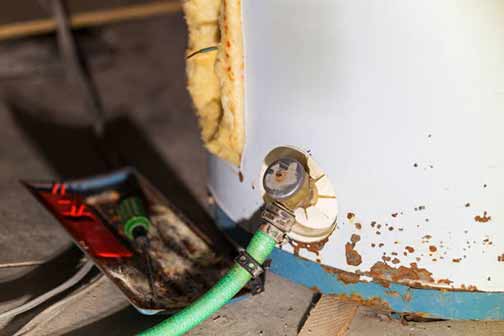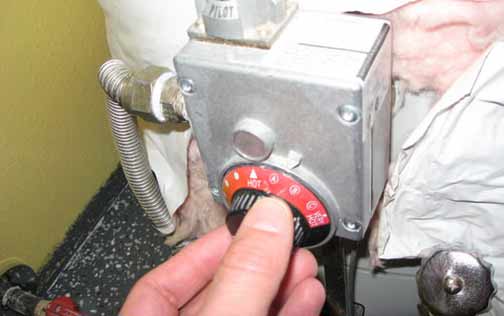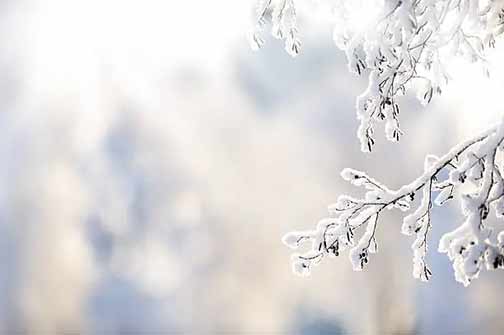Understanding the Impact of Cold Weather on Hot Water Heaters
Winter brings with it a host of challenges, and one of the most significant ones is the impact of cold weather on hot water heaters. As temperatures drop, the efficiency and functionality of your hot water heater can be compromised. Understanding how cold weather affects your hot water heater is crucial to ensure its optimum performance during the winter months.
Cold weather can cause the water in your pipes to cool down significantly, which means your hot water heater has to work harder to heat the water to the desired temperature. This increased workload can lead to a variety of issues, including higher energy consumption, fluctuating water temperatures, and even potential damage to the heater itself. By understanding these impacts, you can take proactive steps to maintain your hot water heater and ensure it operates efficiently throughout the winter season.
Common Issues Faced by Hot Water Heaters in Winter
During winter, hot water heaters are susceptible to a range of issues that can disrupt their performance. Some of the common problems include frozen pipes, increased energy consumption, and fluctuating water temperatures. These issues can lead to a lack of hot water when you need it most, making it essential to be vigilant and proactive in monitoring your hot water heater.
Frozen pipes can cause blockages and even burst, leading to significant damage to your plumbing system. Increased energy consumption can result in higher utility bills, while fluctuating water temperatures can make it difficult to enjoy a consistent and comfortable hot water supply. By being aware of these common issues, you can take steps to prevent them and ensure your hot water heater operates smoothly during the winter months.
Frozen Pipes: A Major Concern
One of the most significant issues that hot water heaters face during winter is frozen pipes. When temperatures drop below freezing, the water inside the pipes can freeze, leading to blockages and a potential burst pipe situation. Frozen pipes not only disrupt the flow of hot water but can also cause extensive damage to your plumbing system. It is crucial to insulate your pipes and keep your home adequately heated to prevent this issue.
Insulating your pipes is one of the most effective ways to prevent them from freezing. There are various insulation materials available, such as foam pipe insulation and heat tape, which can help keep your pipes warm and prevent freezing. Additionally, keeping your home heated to a consistent temperature can help prevent the water in your pipes from freezing. If you suspect that your pipes have frozen, it is essential to take immediate action to thaw them and prevent further damage.
Increased Energy Consumption and Utility Bills
Cold weather can cause your hot water heater to work harder to maintain the desired water temperature. This increased workload results in higher energy consumption, which can significantly impact your utility bills. Ensuring that your hot water heater is well-maintained and operating efficiently can help mitigate this issue and keep your energy costs in check.
Regular maintenance, such as flushing the tank to remove sediment buildup and checking for any signs of wear and tear, can help ensure that your hot water heater operates efficiently. Additionally, insulating your hot water heater and pipes can help retain heat and reduce the workload on your heater. By taking these steps, you can help keep your energy consumption and utility bills in check during the winter months.

Fluctuating Water Temperatures
During winter, you may notice that the water temperature fluctuates more frequently. This can be attributed to the cold weather affecting the water supply and the heater’s ability to maintain a consistent temperature. Performing regular maintenance and timely repairs can help address this issue and ensure a steady supply of hot water.
Fluctuating water temperatures can be frustrating and make it difficult to enjoy a comfortable hot water supply. To address this issue, it is essential to ensure that your hot water heater is operating efficiently and that there are no underlying problems. Regular maintenance, such as checking the thermostat settings and flushing the tank to remove sediment buildup, can help ensure that your hot water heater maintains a consistent temperature. Additionally, insulating your pipes and hot water heater can help retain heat and reduce temperature fluctuations.
Preventative Maintenance for Optimum Performance
To ensure that your hot water heater performs optimally during the winter months, it is essential to carry out regular preventative maintenance. This includes checking for any signs of wear and tear, insulating your pipes, and ensuring that the heater is operating efficiently. By taking these steps, you can prevent potential issues and extend the lifespan of your hot water heater.
Preventative maintenance is crucial to ensuring the efficient operation of your hot water heater. Regularly inspecting your heater for any signs of wear and tear, such as leaks or unusual noises, can help identify potential issues before they become major problems. Additionally, insulating your pipes and hot water heater can help retain heat and reduce the workload on your heater. By taking these preventative measures, you can help ensure that your hot water heater operates efficiently and reliably throughout the winter months.
Insulating Your Hot Water Heater and Pipes
One of the most effective ways to protect your hot water heater from the impact of cold weather is to insulate it and the surrounding pipes. Insulation helps to retain heat, preventing the water from freezing and reducing the workload on your heater. There are various insulation materials available, and it is advisable to contact a professional to determine the best option for your system.
Insulating your hot water heater and pipes can help prevent heat loss and reduce the risk of frozen pipes. Foam pipe insulation and heat tape are popular options for insulating pipes, while hot water heater blankets can help retain heat in the heater itself. It is essential to ensure that the insulation is properly installed and that there are no gaps or areas where heat can escape. Contacting a plumber can help ensure that you choose the best insulation materials and that they are installed correctly.
Regular Inspection and Timely Repairs
Regular inspection and timely repairs are crucial to maintaining the efficiency of your hot water heater during winter. Schedule periodic check-ups with a local plumber to identify any potential issues and address them promptly. This proactive approach can help prevent major problems and ensure a reliable supply of hot water throughout the winter season.
Regular inspections can help identify any signs of wear and tear, such as leaks, unusual noises, or a decrease in water temperature. Addressing these issues promptly can prevent further damage and ensure that your hot water heater continues to operate efficiently. Scheduling periodic check-ups with a plumber can help ensure that any potential problems are identified and addressed before they become major issues. By taking a proactive approach to maintenance, you can help ensure a reliable supply of hot water throughout the winter season.

Adjusting the Thermostat Settings
During winter, it may be necessary to adjust the thermostat settings on your hot water heater to compensate for the colder temperatures. Increasing the temperature setting can help ensure that you have a sufficient supply of hot water. However, it is important to avoid setting the temperature too high, as this can lead to scalding and increased energy consumption. A plumber can help you determine the optimal temperature setting for your heater.
Adjusting the thermostat settings on your hot water heater can help ensure that you have a sufficient supply of hot water during the winter months. However, it is essential to avoid setting the temperature too high, as this can lead to scalding and increased energy consumption. A plumber can help you determine the optimal temperature setting for your heater, taking into account factors such as the size of your household and your hot water usage. By adjusting the thermostat settings appropriately, you can help ensure a reliable supply of hot water while minimizing energy consumption.
Flushing the Tank to Remove Sediment Buildup
Over time, sediment can build up in the tank of your hot water heater, affecting its efficiency and performance. Flushing the tank periodically can help remove this buildup and ensure that your heater operates smoothly. This is particularly important during winter when the heater is under increased strain. Consult your heater’s manual or a plumber for guidance on how to properly flush the tank.
Sediment buildup can reduce the efficiency of your hot water heater and lead to potential damage. Flushing the tank periodically can help remove this buildup and ensure that your heater operates smoothly. This is particularly important during the winter months when the heater is under increased strain. Consult your heater’s manual or a professional for guidance on how to properly flush the tank. Regularly flushing the tank can help extend the lifespan of your hot water heater and ensure that it operates efficiently.
Monitoring for Signs of Wear and Tear
Winter can exacerbate any existing wear and tear on your hot water heater. It is essential to monitor your system for signs of damage, such as leaks, unusual noises, or a decrease in water temperature. Addressing these issues promptly can prevent further damage and ensure that your heater continues to function effectively.
Monitoring your hot water heater for signs of wear and tear is crucial to ensuring its efficient operation. Leaks, unusual noises, or a decrease in water temperature can indicate potential problems that need to be addressed. By identifying and addressing these issues promptly, you can prevent further damage and ensure that your hot water heater continues to function effectively. Regular inspections and maintenance can help identify any signs of wear and tear and ensure that your heater operates efficiently throughout the winter months.
Ensuring Adequate Ventilation
Proper ventilation is crucial for the safe and efficient operation of your hot water heater, especially during winter. Ensure that the area around your heater is well-ventilated to prevent the buildup of harmful gases and to maintain optimal performance. If you have a gas-powered heater, be particularly vigilant about checking the ventilation system for any blockages or damage.
Ensuring adequate ventilation is essential for the safe and efficient operation of your hot water heater. Proper ventilation helps prevent the buildup of harmful gases, such as carbon monoxide, and ensures that your heater operates efficiently. If you have a gas-powered heater, it is particularly important to check the ventilation system for any blockages or damage. Regularly inspecting and maintaining the ventilation system can help ensure that your hot water heater operates safely and efficiently throughout the winter months.
Considering a Tankless Water Heater
If your current hot water heater is struggling to keep up with the demands of winter, you may want to consider upgrading to a tankless water heater. Tankless heaters provide hot water on demand and are generally more energy-efficient than traditional tank heaters. While the initial investment may be higher, the long-term savings and improved performance can make it a worthwhile option.
Tankless water heaters provide hot water on demand, which can be particularly beneficial during the winter months when the demand for hot water is higher. These heaters are generally more energy-efficient than traditional tank heaters, as they only heat water when it is needed. While the initial investment may be higher, the long-term savings and improved performance can make it a worthwhile option. If your current hot water heater is struggling to keep up with the demands of winter, consider contacting a professional water heater replacement plumber to determine if a tankless water heater is the right choice for your home.
Conclusion: Staying Proactive for Winter Preparedness
Winter can pose significant challenges for your hot water heater, but by staying proactive and vigilant, you can ensure its optimal performance. Regular maintenance, insulation, timely repairs, and proper adjustments can help mitigate the impact of cold weather and ensure a reliable supply of hot water. By taking these steps, you can enjoy a comfortable and worry-free winter season.
Staying proactive and vigilant is crucial to ensuring the efficient operation of your hot water heater during the winter months. Regular maintenance, such as flushing the tank and checking for signs of wear and tear, can help prevent potential issues and ensure that your heater operates efficiently. Insulating your pipes and hot water heater can help retain heat and reduce the risk of frozen pipes. Additionally, adjusting the thermostat settings and ensuring adequate ventilation can help maintain optimal performance. By taking these steps, you can help ensure a reliable supply of hot water and enjoy a comfortable and worry-free winter season.


